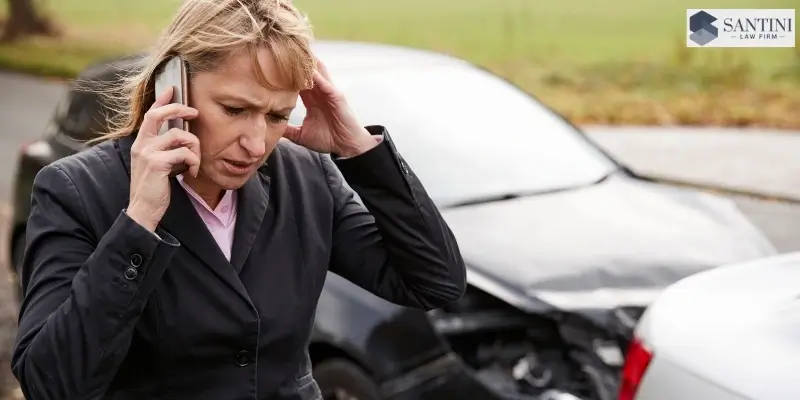Florida Car Accident Laws 2026 – All You Need To Know

Car accidents are often stressful and overwhelming, and that is even more likely when you or a family member suffers a serious injury as a result. Florida’s laws about who is responsible for paying after a car accident can be confusing and difficult to navigate. If you’ve recently been in a car accident, here is everything you need to know about Florida car accident laws and how to handle your claim.
Car Accidents in Florida
Florida has one of the highest rates of car accident fatalities in the US, behind only Texas and California, according to the National Highway Traffic Safety Administration (NHTSA). In 2023 alone, Florida saw 395,175 traffic accidents, and those accidents included:
- 3,375 fatalities
- 12,456 incapacitating injuries
- 236,886 other injuries
Some of the deadliest roads in Florida are located in the Tampa Bay area, including U.S. 19, U.S. 41, and I-4. Hillsborough, Pinellas, and Pasco Counties are among those with the highest number of deaths in recent years. Alcohol intoxication, speeding, and distracted driving all can play a major role.
Florida Auto Insurance
Most states require drivers to carry a minimum amount of auto insurance on their vehicles as a part of the registration criteria. However, Florida’s no-fault system for filing auto insurance claims differs from many states in that drivers must file a claim with their own auto insurance policy, regardless of who caused the accident. Florida’s minimum auto insurance requirements include:
- $10,000 personal injury protection (PIP) coverage
- $10,000 property damage liability (PDL) coverage
- Continuous coverage from a licensed insurance company
Failure to maintain minimum insurance can lead to penalties. These can include suspension of vehicle registration and driving privileges for up to three years, along with a fee of up to $500 to reinstate.
Car Accidents and Liability
In Florida, people involved in car accidents must file a claim with their own insurance first. PIP insurance generally covers 80% of medical expenses and 60% of lost wages. With the state minimum of $10,000, an extensive injury can quickly reach that amount. When that happens, the injured person can then file a claim with the at-fault party’s insurance company if the injury meets Florida’s threshold for a serious injury, which includes:
- Permanent disability
- Dismemberment, such as loss of limb or bodily function
- Disfigurement or significant scarring
- Death
It is important to note that injuries that are likely to fully heal generally do not qualify for a claim outside of PIP coverage. Consult with a qualified personal injury lawyer if you are unsure about your particular circumstance.
Bodily injury liability (BIL) coverage is not required by the state, but it is often included in standard policies. If the at-fault driver does not have BIL coverage, their coverage limit is low, or their insurance company denies the claim, the injured person may need to file a claim under their own uninsured/underinsured motorist coverage or file a legal claim against the driver. Check with your insurance carrier to determine your own coverage.
When You Need a Florida Car Accident Lawyer
Many simple traffic accidents that have minimal damage and less severe injuries can be resolved through the insurance claims process. When there are serious injuries or a dispute over who is at fault, insurance companies may try to deny claims or shift blame. If an injured person reaches the limit of their insurance policies or has a severe injury that requires ongoing treatment, such as physical rehabilitation or daily care, further legal action may be necessary.
A qualified personal injury attorney can help, no matter where you are in the process. Your attorney can navigate insurance claim procedures, negotiate with insurance companies, and represent you in court if the case needs to go to trial. They can handle most of the official aspects of the case, so you can focus on your recovery and make sure that you have the most favorable outcome possible in your case.
FAQs
What Is the New Law in Florida for Car Accidents?
A new law in Florida for car accidents is House Bill (HB) 837, which made several changes to how personal injury cases are handled. It reduced the statute of limitations from four years to two years and introduced limits on who is eligible to recover compensation, based on the percentage of fault assigned to them in the accident.
Who Pays for Car Damage in Florida’s No-Fault System?
In Florida’s no-fault system, the at-fault driver’s property damage liability insurance usually pays for car damage. In general, PDL coverage pays for damage to the other person’s property, unlike personal injury coverage, which applies to the insured person. If a driver has collision coverage on their policy, it will cover damage to their own car, regardless of who is at fault. If the damage exceeds the insurance limits, further legal action may be required to recover damages.
What Does a Car Accident Settlement Cover in Florida?
A car accident settlement in Florida generally covers all financial losses, such as lost wages, medical bills, future medical expenses, and out-of-pocket expenses. In addition, a settlement may also cover the trauma, emotional pain, physical pain, and other negative ways a person’s life is impacted because of their injuries from the accident.
Can You Recover Damages if You are At Fault?
Because Florida has a modified comparative negligence system, you may be able to recover damages after a car accident even if you are at fault. However, the amount of damages you are entitled to may be reduced by the amount of fault you are assigned. In addition, insurance companies often try to shift the blame in order to deny claims. A car accident attorney can help you determine fault and liability in your particular situation.
Contact Santini Personal Injury & Car Accident Law Today
Understanding who is responsible for paying damages after a car accident in Florida can be complicated, especially when you are dealing with injuries, medical bills, and financial stress at the same time. Get the help you need to navigate these complex legal issues. Contact Santini Personal Injury & Car Accident Law today to set up a consultation with an experienced Florida car accident lawyer and discuss your legal options.
Let Us Get You Started In The
Right Direction
Fields marked with an * are required


